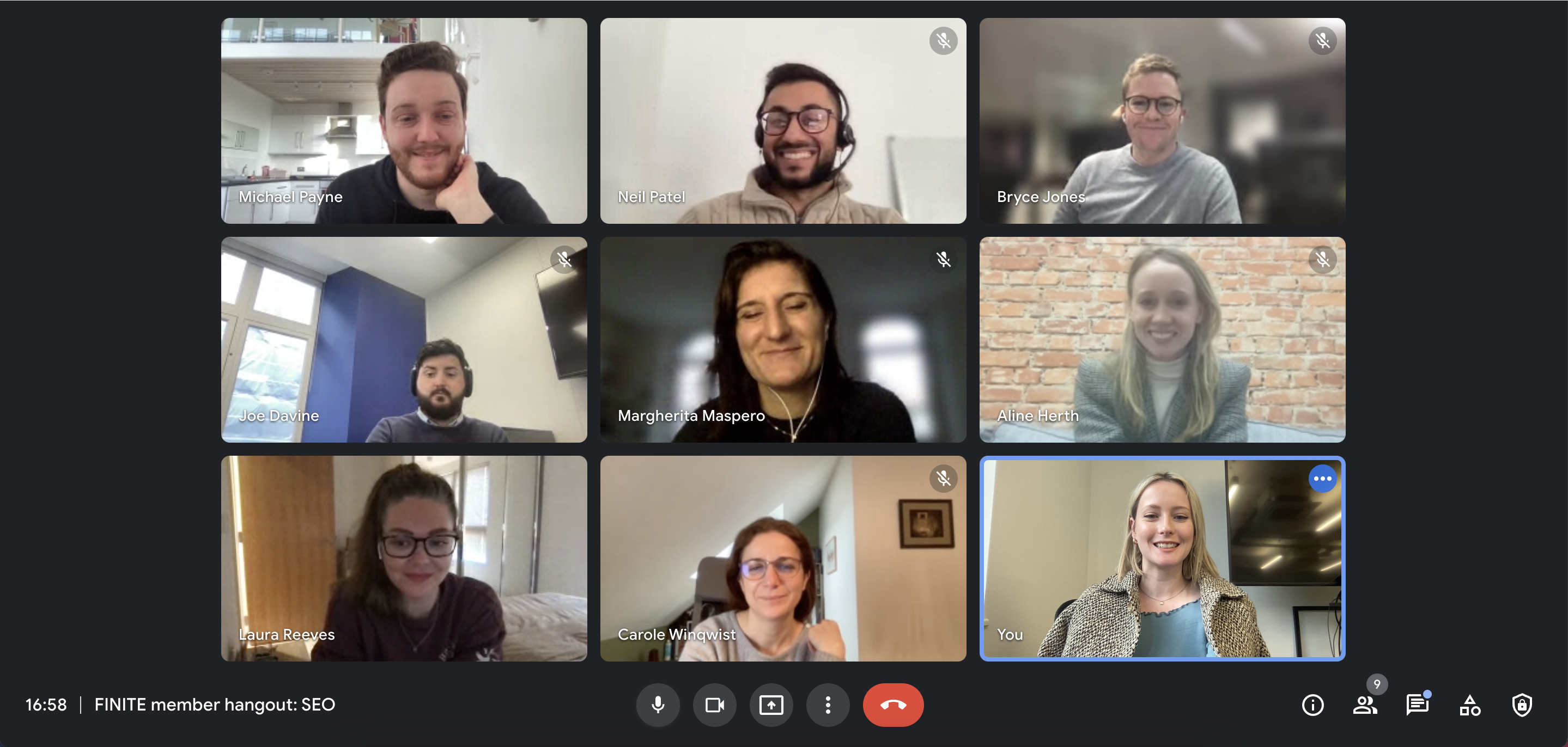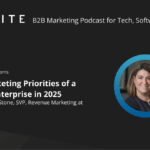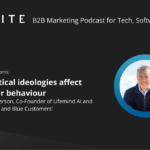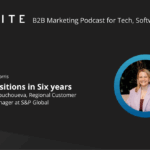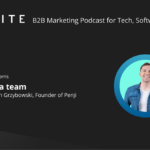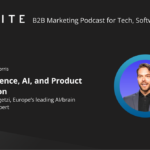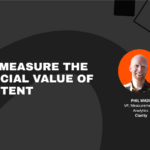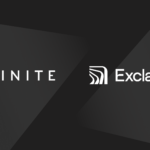We just held the very first topic-specific FINITE member hangout, and it’s safe to say that it was a success! FINITE member hangouts are an opportunity for our members to solve their current challenges and meet other friendly B2B technology and SaaS marketers within the FINITE community.
During yesterday’s chat, we were joined by SEO expert, Michael Payne, SEO Account Director at 93x, who specialises in SEO for B2B tech and SaaS companies. Michael led the conversation, offered his perspective, and agreed with lots of the great insights from the rest of the group.
We kicked off the discussion with a broad question:
How do you prioritise your B2B SEO strategy?
One FINITE member explained how they break down their SEO into two main areas: technical and content. They start with an audit to ensure core web vitals and technical aspects of SEO give their website and content the best site architecture to start off with.
Our SEO expert Michael emphasised the importance of Core Web Vitals on user experience, a main priority for SEO. However, at this point in time, and in his recent experience, Google is prioritising other search ranking factors such as external links.
One member went on to explain how SEO content can be split into two buckets: branded and non-branded, and you need both. If you tie in the technical aspects to get traffic from your non-branded content to your branded, you’re set for success as users discover your ecosystem or thought leadership. Hint: If you’re seeing an increase in branded traffic, this is an indication that your brand awareness is on the rise!
To conclude, there is no magic trick to quick gains in SEO, and not one factor will impact your ranking or domain authority overnight. Getting to the first page of Google requires a long term scope, consistency and acknowledgement of all elements, from Core Web Vitals to keyword research.
Are there any shortcuts to B2B SEO?
The group agreed that content is still king when it comes to SEO, and no matter what, it requires time and resources to build up and make an impact – 6 to 12 months at least. Content is especially important in the B2B tech and SaaS space where products and services are niche and complex, and the need to educate an audience is more prevalent than in B2C.
One member confessed a bit of a contrarian perspective. They don’t tend to listen to Google’s advice, because after all, they’re a marketing service too. They believe that moving the needle on SEO is all about your own testing. In their experience, they found that links are more important than Google pretends they are, and running paid ads does have an impact on organic SEO. They also found that sites launched without Google Analytics performed worse than those that launched with GA!
Someone added that PPC is a great step to unlocking organic, because you get real, actionable insights about your audience quickly and cheaply.
How are you using Google Analytics and have you moved to GA4?
Google Analytics, as we all know, is great for measuring the success of SEO. There are some key differences between the two platforms, which mean that whenever you need to work on funnel tracking, use the old version, but if you need overview snapshots of your user demographics etc. use the new version.
How do you create demand for a search query?
Demand generation goes beyond SEO into the greater realm of B2B marketing, as you aim to coin terms and phrases and build awareness for a product or service that might not exist in your customer’s minds yet. There are always digital PR tactics, partnerships and events; other marketing tactics used to build associations with your brand.
One of our members revealed their sneaky way to generate demand for a search query, and that is to tie known messaging in with your own branded messaging. You can connect the dots between well-known terms to your specific offering by putting search words and phrases together. This marketer in particular found that creatively making a connection between known and unknown terms actually increased the user’s time spent on a page!
Next someone from the group posed an interesting hypothetical:
If you have a new website, you want to build out your B2B SEO, but you only have £5,000, how do you invest it?
If you’ve got a brand new website, this should act as a great platform to launch an SEO strategy, and it should have technical SEO already integrated. Now, you should spend the rest of your budget on producing relevant, educational and positioning content to showcase your expertise and brand.
To do this, start with keyword mapping, which is arguably the most important part of SEO. Whether you do keyword research with tools, or talking to your customers, find out what people are searching for and write, write, write, to meet them where they are.
Keyword research can also help you identify the purpose of your content. Whether the people searching for these terms intend to buy soon, or whether they just want to know more information about a certain subject. Then, build pillar pages with lots of internal links around one topic, as well as cluster pages to support this.
To build out your content clusters and find related subjects, you can look at semantically related keywords, the ‘People also ask’ section of Google, as well as search suggestions to find out what people are looking for in a similar vicinity.
All in all, our FINITE member hangout on SEO was brilliant. Our members gained valuable takeaways that they can implement in their strategies today. We hope you did too!
